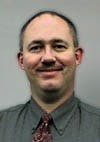Workplace safety is always in season
Mark D. Stoops, Seitel Leeds & Associates
Looking back over the past 30 years, everyone can see that life and nearly everything in it has changed. One area of professional and personal life that has seen as much change as any is safety. Improvements in personal, workplace, and general-public safety have truly been dramatic over the past few decades.
I can remember myself as a young man, working for the construction company owned by my father and grandfather, climbing on, around, and through buildings in various stages of construction or demolition. In the interest of saving time, which I now understand means saving cost, we took many shortcuts. Never did we allow the quality of the finished product to suffer from these cost-saving steps, but if it meant the workers had to take a chance with their personal safety here and there, we all knew and accepted that fact simply as the way things were done. Many a lunchbox conversation centered around how difficult the Occupational Safety and Health Administration would make it on construction companies like ours to get a job done on time and still turn a profit.
Obviously, many years have passed since then, and business still makes a profit, even with all those OSHA-imposed "hindrances" keeping workers and the general public safe. I find it interesting to think back to my college years, when I was working on a degree in electrical engineering. In almost every class, safety took up at least some part of the discussion. The instructors made it very clear that any design we worked on as we became "real engineers" would have to have within it a margin for safety.
My first engineering assignment after college involved the reconstruction of a major river dam. In reality, my duties were more of a time-card clerk than those of an engineer, but looking back on it, I'm glad that was the situation. My responsibilities as the crew's "gopher" gave me plenty of time to observe a major construction project firsthand. I had not been on an actual construction site for a few years, and I had never been on a job of this size. I also found it interesting to see so much emphasis on worker, site, and general-public safety and, odd though it seemed, see the project running on schedule. I realized that it is possible to operate efficiently and safely without compromising quality or schedule.
After that educational and enjoyable summer, I had the opportunity to take an outside-plant (OSP) engineering job with Pacific Northwest Bell Telephone Co. From the beginning, I realized safety was the company's top concern. Those with a Bell System background probably remember the credo: "No job is so important, no service is so urgent, that we cannot take the time to do our job safely." It was displayed everywhere in my workplace. As an example of just how seriously the company took safety, employees had to pass the safety course, then pass an annual review to keep a company driver's license and drive a company vehicle.
Those given the honor of working with tools-and I consider it an honor to be allowed to craft something with my hands-went through training with an emphasis on safety before we were allowed to do any work. Those of us trained in the Bell System's OSP engineering style were taught to consider, from a safety standpoint, absolutely everything within the vicinity of any design fieldwork. We were fully supported, without question, whenever we decided to stop a work activity because of an observed unsafe act.
Before I left the Bell family, I had the opportunity to work as an engineer in the central office and transmission arena. While there were no more cold days when I had to make field notes in the snow, there was no less emphasis on safety. I was also fortunate to spend some time as a central-office supervisor. I came to realize that it is no small feat to accept responsibility for the safety of a hardworking crew.
It was indeed difficult when a telephone customer was without service and I had to send technicians from their homes, in the middle of the night, during a storm. Fortunately, all technicians were trained and comfortable in carrying out the job safely.
Today, I work as an engineer in the voice and data-networking field. My fellow professionals and I make sure to address safety with the same emphasis with which we address available bandwidth. It is, was, and always will be true that "no job is so important that we cannot take the time to do it safely."
Mark D. Stoops, RCDD, is a senior network engineer with Seitel Leeds & Associates (Seattle). He welcomes inquiries on the subject of safety and can be reached at [email protected].

